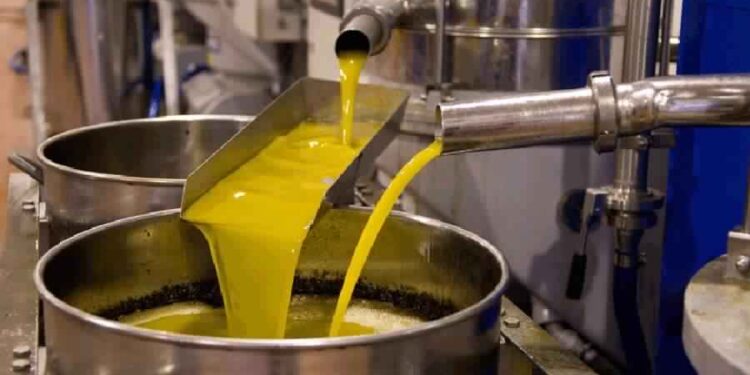Tunisia has exported 224.6 thousand tonnes of olive oil from the start of the 2024-2025 campaign until the end of June, an increase of almost 36% compared to the previous year. This increase in volume is however accompanied by a significant decrease in revenues because of the fall in prices for export.
According to the latest data published Tuesday, July 15, 2025 by the National Observatory of Agriculture (ONAGRI), Tunisian exports of olive oil reached 224.6 thousand tonnes at the end of June, against 165.2 thousand tonnes for the same period of the 2023-2024 campaign period, an increase of 35.9%.
Revenue down 31%
However, this increase in volume did not result in an increase in income. Total revenues raised at 3030.4 million dinars (MD), down 31% compared to last year (4391.9 MD), due to the drop in average export prices, estimated at -49.1% in June.
The majority of the oil exported (86.4%) is still in bulk, even if the condition of the conditioned increased slightly (13.6%, against 12.3%last year). Extra virgin oil represents more than 80% of the total exported.
The ONAGRI highlights the valuation efforts of the packaged and the biological, but notes that these segments remain marginal in the total exported: only 19.7% of the recipes come from the packaged oil, and 6% for the packaged organic oil. The average price of the bio liter reaches 13.59 DT/kg, with a large difference between the bulk (13.39 DT/kg) and the packaged (16.66 dt/kg).
The global situation in question
For several campaigns, Tunisia has asserted itself as one of the world’s leading exporters of olive oil. The 2023-2024 campaign had experienced record revenues, carried by high prices on international markets, especially European. In 2025, the global situation – especially in Europe and Spain – led to a drop in demand at high prices and to pressure on prices.
The main customers of Tunisian oil remain Italy (27.3%), Spain (25%) and the United States (21.8%). For organic, Italy also dominates (51.7%), followed by the United States (18.9%) and Spain (18.6%).
The challenge for Tunisia remains the upmarket, by valuing the packaged and the markets with high added value.








